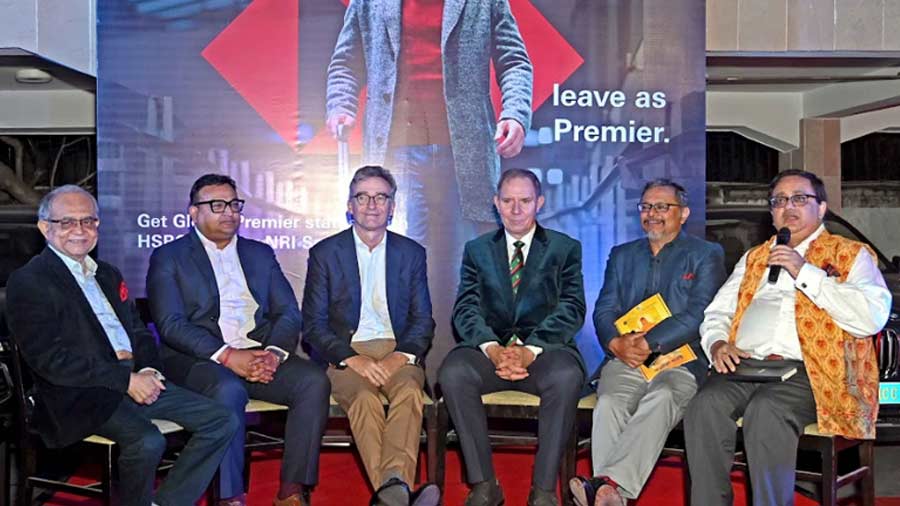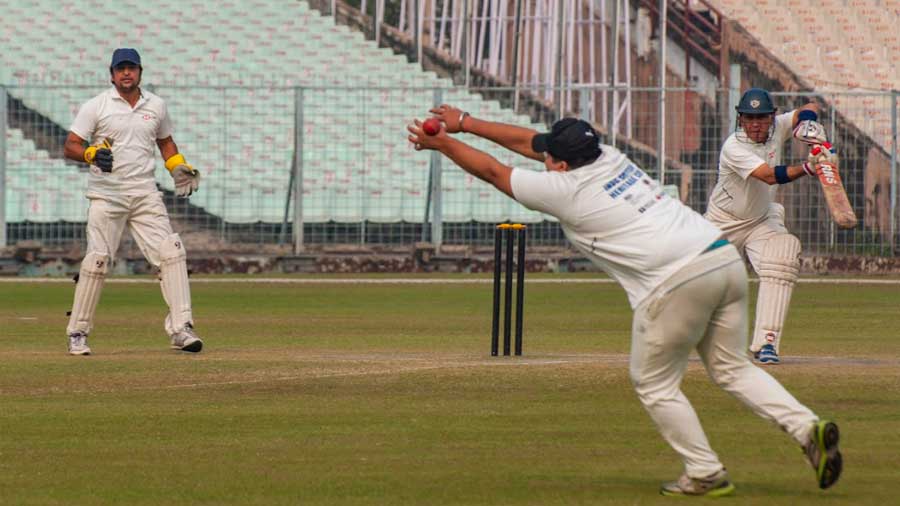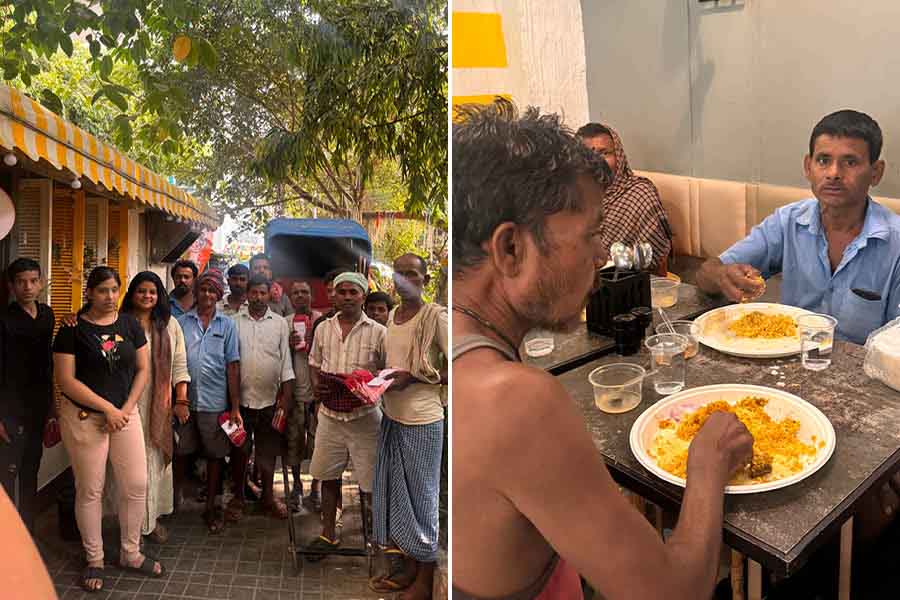On December 27, the Bengal Heritage Foundation (BHF), a UK-based charity mostly comprising Bengalis living and working in the UK, hosted its annual get-together, the Bengal Heritage Dinner, at The British Club, on the premises of the British Deputy High Commission, Ho Chi Minh Sarani.
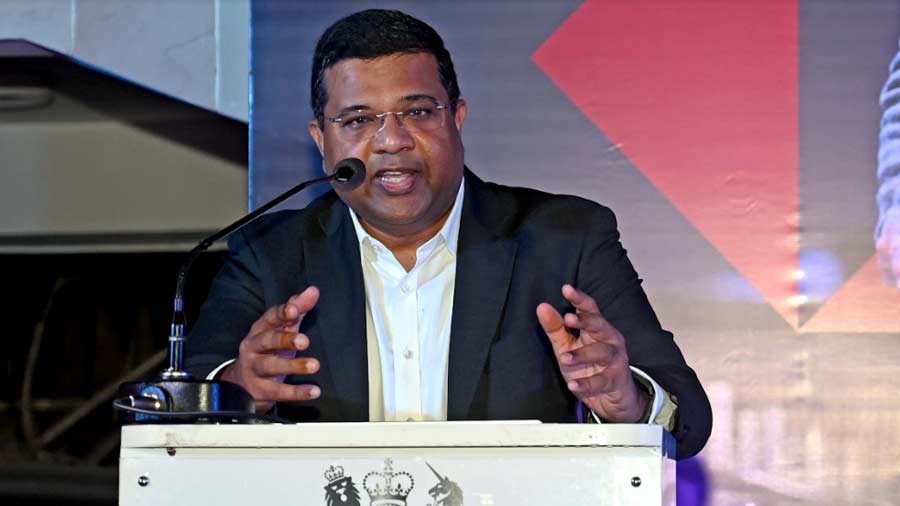
Suranjan Som delivers the welcome address for the evening
The evening got underway with an opening address by Suranjan Som, president of BHF, who welcomed the guests and thanked the partners for the event, including the British Council, the Indo-British Scholars’ Association (IBSA) and HSBC.
The Durga Puja exhibition in London 2018 attended by a quarter of a million people
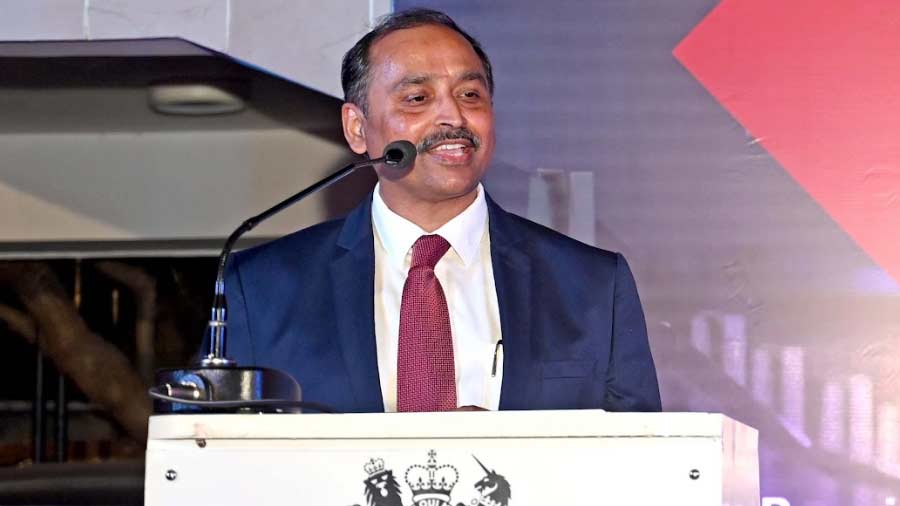
Salil Bhatnagar shares tips about estate planning and HSBC’s role in it
Som made way for Salil Bhatnagar, head of sales and business, HSBC India, who explained estate planning or the “hassle-free transfer of wealth from one generation to another”. Using an in-depth presentation, Bhatnagar outlined the strategic imperatives behind estate planning, from access to liquidity to creating a trust as opposed to writing a will. “The Indian diaspora has been making huge contributions to the UK, and at HSBC we’re delighted to be able to serve both these valuable parts of the world,” he said.
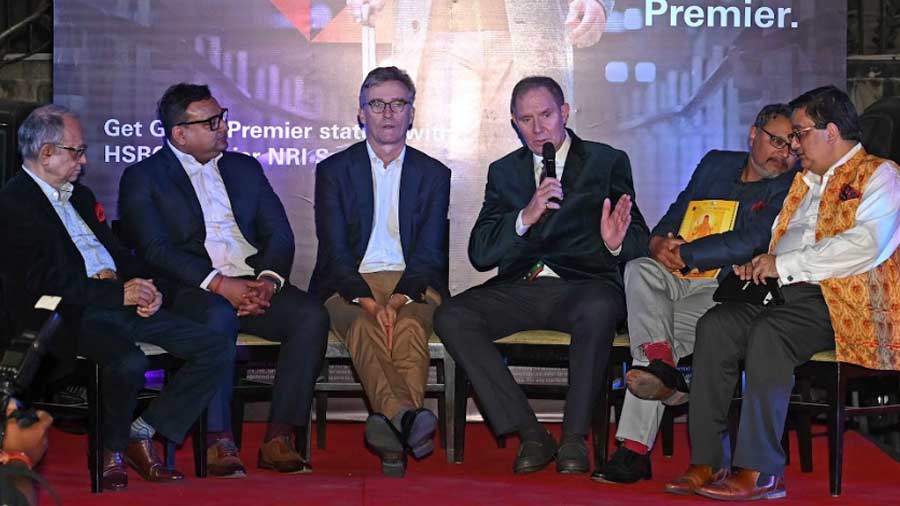
Panellists discussing the ‘living bridge’ between the UK and India and its contemporary relevance
Next on the agenda for the evening was a panel discussion on the idea of the ‘living bridge’ between India and the UK. Moderating the discussion, BHF’s Sourav Niyogi touched upon the closely knit ties that sustain the symbiosis between the UK and India, especially West Bengal, before inviting each of the panellists to offer a unique perspective on Indo-British relations in the present geopolitcal and cultural climate.
“In 2021, Kolkata’s Durga Puja had the honour of being inscribed in UNESCO's List of Intangible Cultural Heritage of Humanity. The British Council's mapping of the creative industries around the festival played a part in this global recognition. Back in 2018, the British Council, along with West Bengal Tourism Department, had hosted an exhibition as part of the Totally Thames Festival on the South Bank (beside the Thames in London) highlighting Durga Puja and its cultural appeal. This was attended by a quarter of a million visitors. The exhibition was supported by BHF and some of the initial ideas around the creative economy mapping of the festival emerged during meetings we had between the state government, BHF and the British Council. In the creative economy mapping report on Durga Puja, we were able to track an almost 20 per cent spike in visitors from the UK and Europe to Kolkata during the 2019 festival as a direct impact of the exhibition. Going forward, I really hope that the work on our creative and cultural industries that we’re doing with the West Bengal government, supported by BHF, can continue to play an important role in driving the two economies forward. In this context, India’s presidency of the G20 (between December 2022 and November 2023) will be crucial, as it’s set to prioritise the creative economy as one of its four priorities,” said Debanjan Chakrabarti, director, British Council, East and Northeast India.
India-UK collaboration on tourism, education and healthcare
Nick Low, the British Deputy High Commissioner to Kolkata, opened a fresh tangent in the discussion, focusing on his three-year stint in the city, which he described as “bittersweet”. “It’s bitter because so much of it was lost to the pandemic, which meant that I couldn’t do a lot of what I had in mind. At the same time, I’ve tried to take every possible opportunity to bring together people from West Bengal and the UK, given the vast amount of talent that exists in both places. We’ve seen some great collaboration among our universities, but there’s potential for more. As is the case with tourism, more so considering that the UK is projected to rely on tourism for 10 per cent of its GDP by 2025.”
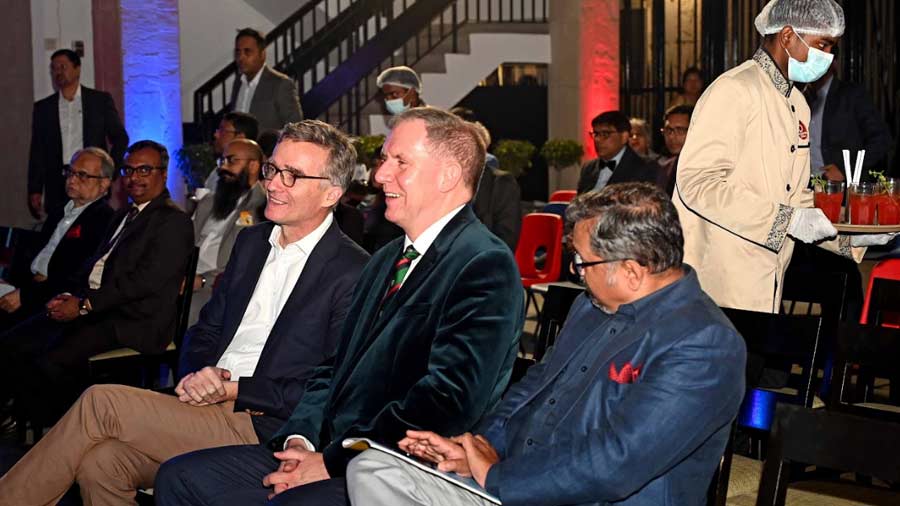
(L-R): Alex Ellis, Nick Low and Debanjan Chakrabarti share a light moment off stage
Developing on the same thread, Alex Ellis, the British High Commissioner to India, said: “I’m very pleased to see that the Indian government has reintroduced e-visas. At the moment, there’s a great flow of people from India to the UK. The reverse isn’t quite at the same level, but we hope to see that changing in the time to come. Around 42 per cent of all skilled worker visas in the UK are given to Indians, and there’s definitely a lot of potential for India and UK to collaborate on matters of climate change and sustainability, trade and investment, and healthcare. But I’d really like to see more people from the UK come to India. Back home, India is still seen in simplistic terms. I’d like more and more people to come to India and understand the country for what it really is.”
On the subject of collaboration between India and UK universities, Subrata Paul, president of IBSA, said: “This is IBSA’s silver jubilee year, and we’re delighted to have been able to visit several reputable institutions in the UK recently, including the centre where Covishield was manufactured. We’ve signed a number of MOUs with British universities in the last few months, which we hope will go a long way in consolidating scholarly ties between the UK and India.”
Capping off the panel discussion was Saibal Ghosh, head of wealth development, HSBC India, who congratulated BHF for its “exemplary work in promoting and preserving Bengali culture globally” and expressed HSBC’s interest to do “whatever it can to deepen its presence in India and the UK, building upon relationships of synergy that prioritise culture over conflict and place more value on community than money”.
Replicating the essence of live theatre digitally
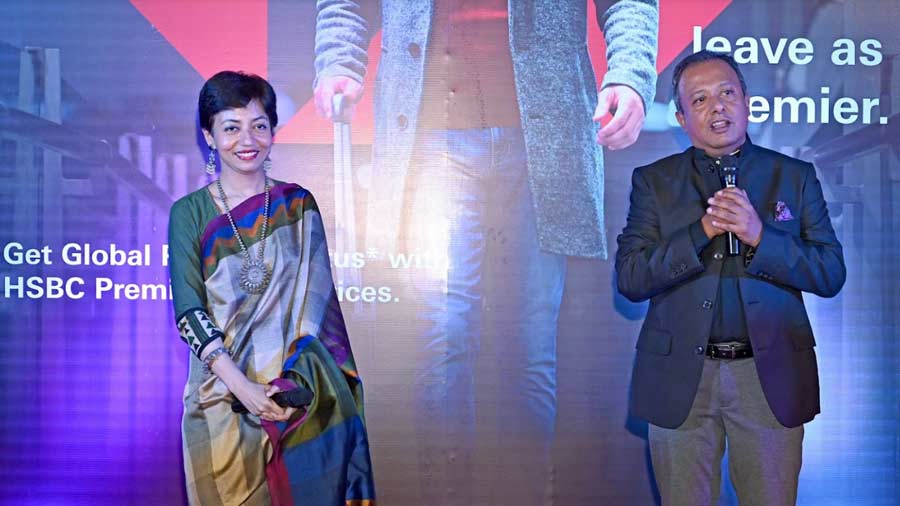
Tanusree Guha (left) and Sarit Bose take the audience through BHF’s major events across the year
In the second half of the event, BHF’s Sarit Bose and Tanusree Guha outlined the array of events BHF does across the calendar year, including the London Sharad Utsav, the Indian Superfans League ootball tournament, Rabindra Jayanti celebrations, the India Mela, the Fagun Fest and the commemoration of Dwarkanath Tagore’s death anniversary.
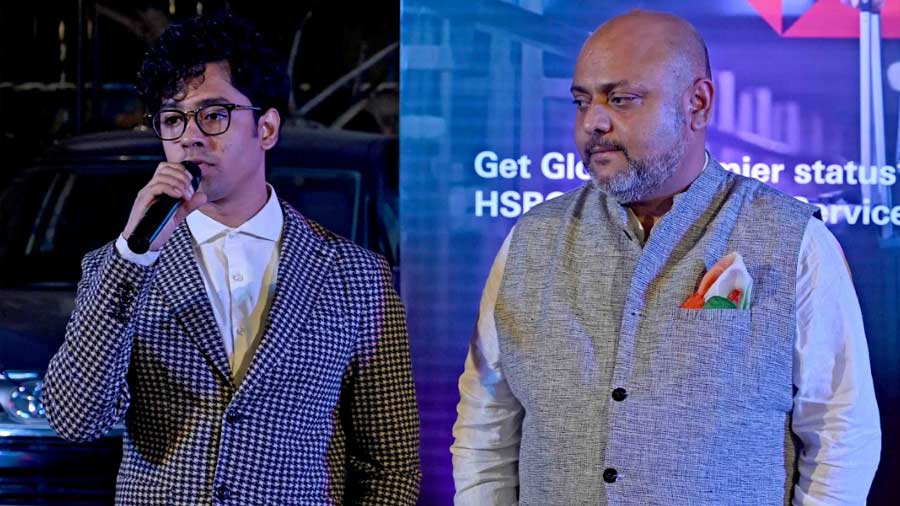
Riddhi Sen (left) and Koushik Chatterjee talk about digitising Bengali theatre for a global audience
Theatre enthusiast Koushik Chatterjee then reminded all present of BHF’s resolution to digitise Bengali theatre on the same day in 2021. A resolution that now stands realised thanks to support from director-actor Koushik Sen, Calcutta Broadway and theatre group Swapnasandhani. The first play to be digitised and shared for global consumption is an adaptation of William Shakespeare’s Hamlet, where the protagonist’s role is essayed by Riddhi Sen. Both Chatterjee and Sen were present to unveil a trailer of the play that has been designed to “replicate the essence of live theatre, inspired by the work of the National Theatre in the UK”.
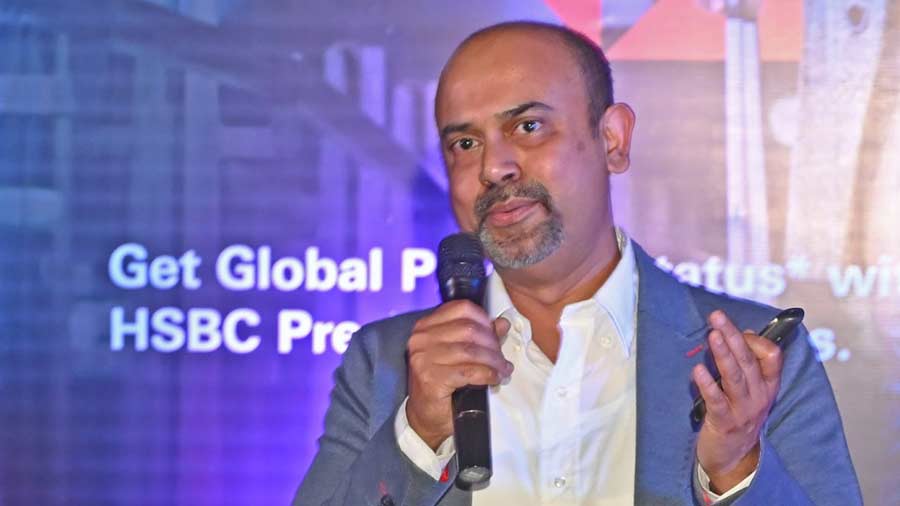
Amit Guha describes the restoration activities as part of the Roxburgh Project
The evening came to an end with BHF’s in-house terracotta expert Amit Guha talking about the Roxburgh Project, an attempt by BHF and the Roxburgh International Trust to rejuvenate the AJC Bose Indian Botanic Garden in Howrah. “There are so many wonderful colonial buildings inside the Botanic Garden, which we want to restore. We’re really excited about this project, where we’ll be working closely with architect Nilina Deb Lal. The plan is to convert parts of the facility into a conference centre for visitors to come in, explore and understand a crucial element of Bengal’s colonial culture,” said Guha.


